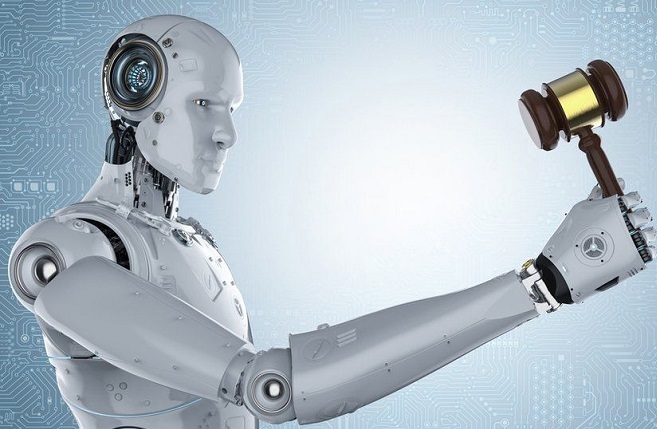When AI robots for the first time advise a defendant during a court hearing in February, it is going to be for the first time ever in history. Through an earpiece, the robot will give the defendant advice on what to say while simultaneously listening to court arguments. The DoNotPay application, which was initially launched as a chatbot to provide consumers with legal advice, makes the robot lawyer possible.
The company DoNotPay, which Joshua Browder, a computer scientist at Stanford University, started in 2015 in California to fight parking tickets, is the inspiration for the concept of a robot lawyer. DoNotPay was created by Joshua Browder in 2015 as a chatbot that provided customers with legal advice regarding parking tickets, fines, and late fees. However, the company switched to AI in 2020.

DoNotPay is a service that uses artificial intelligence (AI) to help people with a variety of legal tasks, including contesting parking tickets and canceling subscriptions. It was founded by Joshua Browder, a British entrepreneur, in 2016. The service is available through a web browser or a mobile app and is designed to be user-friendly and easy to use. DoNotPay has been successful in contesting millions of parking tickets on behalf of its users and has expanded to offer other legal services such as assistance with consumer complaints and small claims court filings. DoNotPay has received a lot of media attention and has been recognized for its innovative use of AI in the legal field.
Surprisingly, AI can do a lot so far as law and court related processes are concerned. A few examples:

Scan and classify legal documents: AI can quickly scan through large volumes of legal documents and classify them based on their content and relevance to a particular case.
Predict the outcome of legal cases: AI can analyze past legal cases and use that data to predict the likelihood of a particular outcome in a current case.
Assist with legal research: AI can help lawyers search through large volumes of legal materials and find relevant information more quickly.
Generate legal documents: AI can be used to generate legal documents such as contracts and pleadings, which can save time and reduce the risk of errors.
Translate legal documents: AI can translate legal documents from one language to another, making it easier for lawyers to work with clients and colleagues in different countries.
Analyze complex data: AI can analyze complex data sets such as financial records or technical documents to uncover patterns and identify potential issues.
Summarize legal arguments: AI can summarize legal arguments and present them in a clear and concise manner, making it easier for lawyers to understand and communicate their case.
Generate reports: AI can generate reports on the progress of a legal case, including analysis of key issues and recommendations for next steps.
Provide legal advice: Some AI systems have been developed to provide basic legal advice on simple legal issues, such as how to draft a will or how to file for divorce.
Assist with dispute resolution: AI can be used to facilitate dispute resolution by analyzing the positions of both parties and suggesting potential compromises.
© Vygr Media Private Limited 2022. All Rights Reserve





















